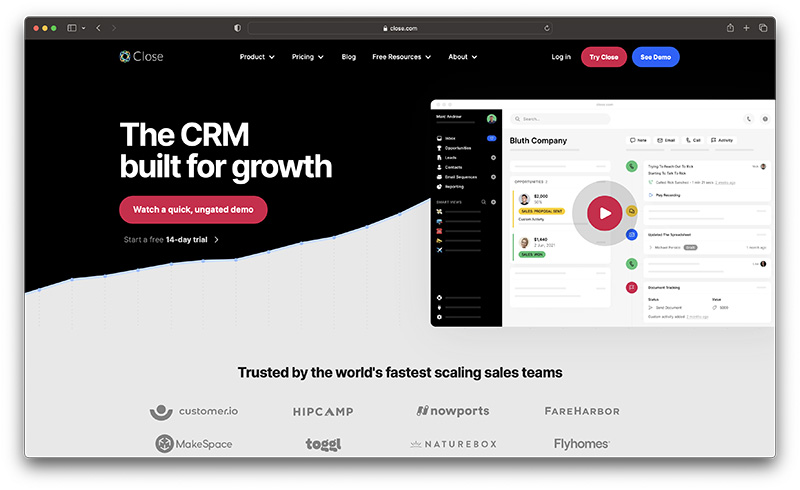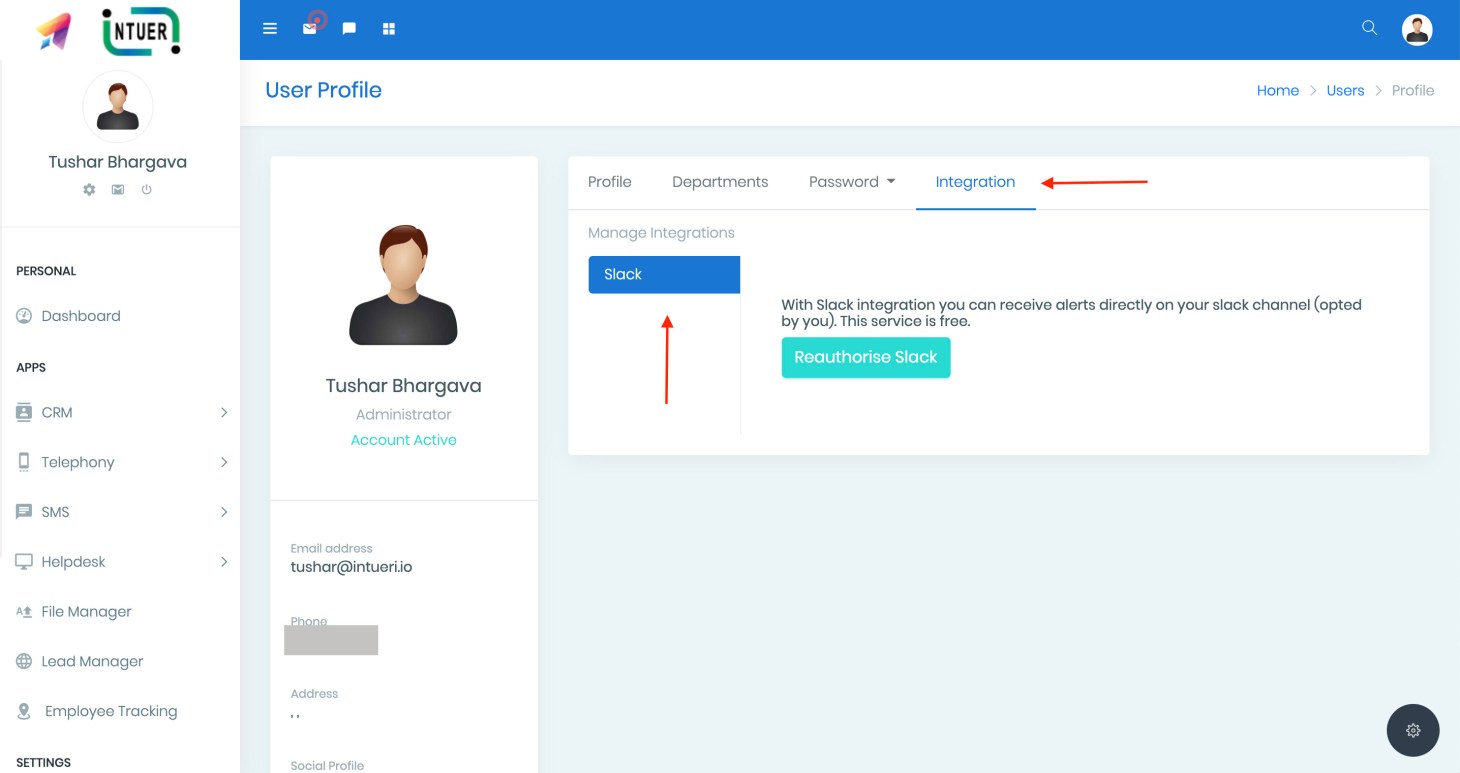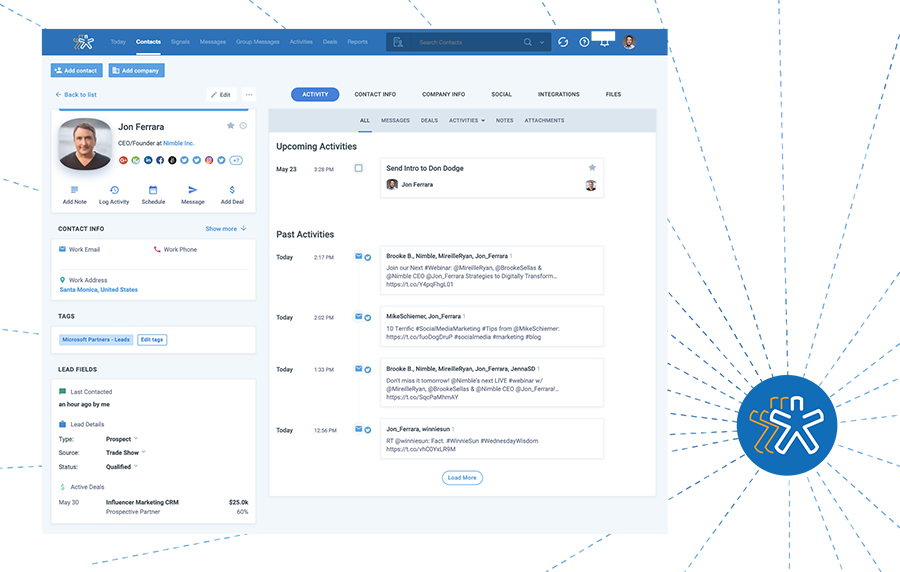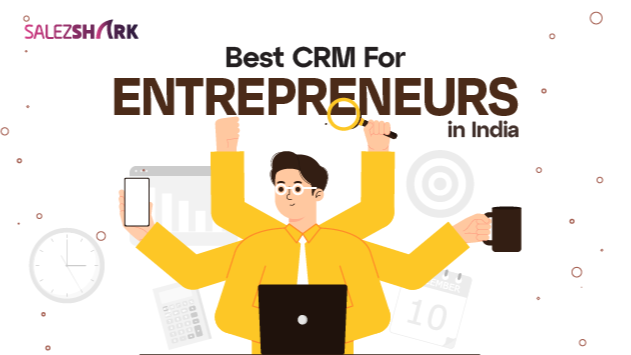The Ultimate Guide to the Best CRM for Small E-commerce Businesses in 2024

The Ultimate Guide to the Best CRM for Small E-commerce Businesses in 2024
Starting an e-commerce business is an exciting adventure. You’re brimming with ideas, products, and the drive to succeed. But as your business grows, so does the complexity of managing customer relationships. This is where a Customer Relationship Management (CRM) system becomes indispensable. For small e-commerce businesses, choosing the right CRM is crucial. It’s not just about managing contacts; it’s about understanding your customers, personalizing their experience, and ultimately, driving sales. This comprehensive guide delves into the best CRM solutions tailored for small e-commerce businesses, helping you make an informed decision that will propel your growth.
Why Your Small E-commerce Business Needs a CRM
In the early stages of your e-commerce journey, you might be juggling customer interactions using spreadsheets, email threads, and memory. However, as your customer base expands, this approach quickly becomes unsustainable. A CRM system acts as a centralized hub for all your customer data, providing a 360-degree view of each customer. This holistic view is essential for:
- Improved Customer Service: Quickly access customer history, preferences, and past interactions to provide personalized and efficient support.
- Enhanced Sales Performance: Track leads, manage sales pipelines, and automate sales processes to close deals more effectively.
- Data-Driven Decision Making: Analyze customer behavior, identify trends, and gain insights to optimize marketing campaigns and product offerings.
- Increased Customer Loyalty: Personalize communication, offer targeted promotions, and build stronger relationships to foster customer loyalty and repeat business.
- Streamlined Operations: Automate repetitive tasks, reduce manual data entry, and free up valuable time to focus on growing your business.
In essence, a CRM empowers you to understand your customers better, serve them more effectively, and ultimately, drive revenue growth. It’s an investment that pays off exponentially as your business scales.
Key Features to Look for in a CRM for Small E-commerce
Choosing the right CRM for your small e-commerce business can feel overwhelming with so many options available. To narrow down your choices, consider these essential features:
- Contact Management: This is the foundation of any CRM. It allows you to store and organize customer information, including contact details, purchase history, and communication logs. Look for features like segmentation, tagging, and custom fields to tailor your customer profiles.
- Sales Automation: Automate repetitive tasks like lead nurturing, follow-up emails, and appointment scheduling. This saves time and ensures that no leads fall through the cracks.
- Marketing Automation: Integrate with your email marketing platform to send targeted campaigns, personalize email content, and track campaign performance.
- E-commerce Integration: Seamlessly integrate with your e-commerce platform (e.g., Shopify, WooCommerce, Magento) to automatically sync customer data, order information, and product details.
- Reporting and Analytics: Gain insights into your sales performance, customer behavior, and marketing campaign effectiveness. Look for customizable dashboards and reporting tools to track key metrics.
- Mobile Accessibility: Access your CRM data and manage your business on the go with a mobile app.
- User-Friendly Interface: The CRM should be easy to learn and use, with an intuitive interface that allows you to quickly navigate and access the information you need.
- Scalability: Choose a CRM that can grow with your business. Ensure it can handle increasing volumes of data and users as your customer base expands.
- Customer Support: Look for a CRM provider that offers reliable customer support, including documentation, tutorials, and responsive support channels.
- Pricing and Value: Consider the pricing structure and ensure it aligns with your budget and business needs. Evaluate the features offered and determine if they provide good value for the cost.
Top CRM Solutions for Small E-commerce Businesses
Now, let’s dive into some of the best CRM solutions specifically designed for small e-commerce businesses. We’ll examine their key features, pricing, and suitability for different business needs.
1. HubSpot CRM
HubSpot CRM is a popular choice for small businesses due to its user-friendly interface, comprehensive features, and free plan. It’s particularly well-suited for businesses that prioritize inbound marketing and content creation.
Key Features:
- Free CRM: HubSpot offers a robust free CRM plan that includes contact management, deal tracking, and basic marketing tools.
- Sales Automation: Automate sales tasks like email sequences, task creation, and deal tracking.
- Marketing Automation: Create and manage email marketing campaigns, landing pages, and forms.
- E-commerce Integrations: Integrates with popular e-commerce platforms like Shopify and WooCommerce.
- Reporting and Analytics: Provides detailed reporting and analytics to track your sales and marketing performance.
- User-Friendly Interface: The intuitive interface makes it easy to learn and use.
Pricing: HubSpot offers a free plan and paid plans starting from $45 per month, billed monthly. The paid plans offer advanced features like more marketing automation, custom reporting, and sales features.
Ideal for: Small businesses that prioritize inbound marketing, content creation, and a user-friendly CRM experience. The free plan is an excellent starting point for businesses just getting started with CRM.
2. Zoho CRM
Zoho CRM is a versatile and affordable CRM solution that caters to businesses of all sizes. It offers a wide range of features, including sales automation, marketing automation, and customer service tools.
Key Features:
- Sales Automation: Automate sales processes, track leads, and manage your sales pipeline.
- Marketing Automation: Create and manage email marketing campaigns, social media marketing, and web forms.
- Customer Service Tools: Manage customer support tickets and provide excellent customer service.
- E-commerce Integrations: Integrates with popular e-commerce platforms like Shopify, WooCommerce, and BigCommerce.
- Customization: Highly customizable to fit your specific business needs.
- Reporting and Analytics: Provides detailed reporting and analytics to track your sales, marketing, and customer service performance.
Pricing: Zoho CRM offers a free plan for up to 3 users and paid plans starting from $14 per user per month, billed annually. The paid plans offer more features and increased storage.
Ideal for: Small businesses that need a comprehensive and affordable CRM solution with sales, marketing, and customer service capabilities. The highly customizable nature of Zoho CRM makes it adaptable to various business models.
3. Freshsales
Freshsales, by Freshworks, is a sales-focused CRM that’s designed to help sales teams close deals faster. It’s a good choice for businesses that prioritize sales automation and lead management.
Key Features:
- Sales Automation: Automate sales tasks like lead scoring, email sequences, and task creation.
- Lead Management: Manage leads, track lead activity, and nurture leads through the sales funnel.
- Built-in Phone: Make and receive calls directly from the CRM.
- Email Integration: Integrates with your email provider to track email communication.
- E-commerce Integrations: Integrates with e-commerce platforms.
- Reporting and Analytics: Provides sales performance reports and analytics.
Pricing: Freshsales offers a free plan and paid plans starting from $15 per user per month, billed annually. The paid plans offer more features, such as advanced automation and more storage.
Ideal for: Small businesses that want a sales-focused CRM with strong sales automation capabilities and lead management features.
4. Pipedrive
Pipedrive is a sales-focused CRM that’s known for its intuitive visual interface and pipeline management features. It’s a great choice for businesses that want a CRM that’s easy to use and helps them visualize their sales process.
Key Features:
- Visual Sales Pipeline: Visualize your sales pipeline and track deals through each stage.
- Deal Tracking: Track deals, manage tasks, and set reminders.
- Sales Automation: Automate sales tasks like email sequences and follow-up reminders.
- Email Integration: Integrates with your email provider to track email communication.
- Reporting and Analytics: Provides sales performance reports and analytics.
- Mobile App: Access your CRM data and manage your sales on the go with a mobile app.
Pricing: Pipedrive offers paid plans starting from $14.90 per user per month, billed annually. The paid plans offer more features and increased storage.
Ideal for: Small businesses that want a visual and intuitive CRM with strong pipeline management features.
5. EngageBay
EngageBay is an all-in-one CRM that combines sales, marketing, and customer service features into a single platform. It’s a great choice for small businesses that want a comprehensive CRM solution that covers all aspects of their customer interactions.
Key Features:
- Sales CRM: Manage leads, track deals, and automate sales processes.
- Marketing Automation: Create and manage email marketing campaigns, landing pages, and forms.
- Live Chat: Provide real-time customer support through live chat.
- Helpdesk: Manage customer support tickets and provide excellent customer service.
- E-commerce Integrations: Integrates with popular e-commerce platforms.
- Reporting and Analytics: Provides detailed reporting and analytics to track your sales, marketing, and customer service performance.
Pricing: EngageBay offers a free plan with limited features and paid plans starting from $14.99 per user per month, billed annually. The paid plans offer more features and increased storage.
Ideal for: Small businesses that want a comprehensive CRM solution with sales, marketing, and customer service capabilities, all in one platform. The free plan is suitable for startups or small businesses.
Choosing the Right CRM: A Step-by-Step Guide
Selecting the ideal CRM for your e-commerce business requires a thoughtful approach. Here’s a step-by-step guide to help you make the right choice:
- Assess Your Needs: Before you start evaluating CRM systems, take the time to understand your business needs. What are your goals? What are your pain points? What features are essential for your business?
- Define Your Budget: Determine how much you’re willing to spend on a CRM system. Consider the pricing structure of each CRM, including the monthly cost, any setup fees, and the cost of additional users or features.
- Research CRM Options: Research different CRM options, considering the features, pricing, and reviews of each provider. Read online reviews, and compare the features of different CRM systems.
- Prioritize Features: Identify the essential features your business needs. Make a list of must-have features and nice-to-have features.
- Consider Integrations: Determine which integrations are essential for your business. Does the CRM integrate with your e-commerce platform, email marketing platform, and other tools you use?
- Evaluate User Friendliness: Choose a CRM with a user-friendly interface that’s easy to learn and use. Consider the learning curve and the time it will take to train your team.
- Test Drive the CRM: Many CRM providers offer free trials or demos. Take advantage of these opportunities to test drive the CRM and see if it meets your needs.
- Get Feedback from Your Team: Involve your team in the selection process. Get their feedback on the different CRM options and ensure they’re comfortable with the chosen system.
- Implement the CRM: Once you’ve chosen a CRM, plan the implementation process. This includes importing your data, configuring the system, and training your team.
- Provide Ongoing Training and Support: Provide ongoing training and support to your team to ensure they’re using the CRM effectively. Stay up-to-date on the latest features and updates.
E-commerce Specific Considerations
Beyond the general features, consider these e-commerce specific aspects when choosing a CRM:
- E-commerce Platform Integration: Ensure seamless integration with your e-commerce platform (Shopify, WooCommerce, BigCommerce, etc.). This is crucial for syncing customer data, order information, and product details automatically.
- Order Tracking and Management: Look for features that allow you to track orders, manage shipping details, and send automated order updates to customers.
- Personalized Product Recommendations: Some CRMs offer features for suggesting products to customers based on their past purchases and browsing behavior.
- Abandoned Cart Recovery: A key feature for e-commerce businesses. The CRM should allow you to automatically send emails to customers who have abandoned their shopping carts, encouraging them to complete their purchase.
- Customer Segmentation: Segment your customers based on purchase history, demographics, and other criteria to personalize marketing campaigns and offers.
- Customer Lifetime Value (CLTV) Tracking: Track the CLTV of each customer to identify your most valuable customers and tailor your marketing efforts accordingly.
- Integration with Payment Gateways: Consider whether the CRM integrates with your preferred payment gateways.
Beyond the CRM: Other Essential Tools for E-commerce Success
While a CRM is a vital tool for managing customer relationships, other tools can significantly enhance your e-commerce success:
- Email Marketing Platform: Integrate your CRM with an email marketing platform like Mailchimp, Klaviyo, or Constant Contact to send targeted email campaigns and automate email sequences.
- Help Desk Software: Use help desk software like Zendesk or Freshdesk to manage customer support tickets and provide excellent customer service.
- Live Chat Software: Implement live chat software like Intercom or LiveChat to provide real-time customer support and answer customer questions.
- Social Media Management Tools: Use social media management tools like Hootsuite or Buffer to schedule social media posts, track engagement, and analyze your social media performance.
- Analytics Tools: Utilize web analytics tools like Google Analytics to track website traffic, analyze customer behavior, and measure the effectiveness of your marketing campaigns.
- SEO Tools: Employ SEO tools like SEMrush or Ahrefs to optimize your website for search engines, track keyword rankings, and analyze your competitors.
The Future of CRM in E-commerce
The CRM landscape is constantly evolving, with new features and capabilities emerging regularly. Here are some trends to watch for in the future of CRM in e-commerce:
- Artificial Intelligence (AI): AI-powered CRM systems will become more prevalent, offering features like predictive analytics, personalized recommendations, and automated customer service.
- Hyper-Personalization: CRM systems will enable businesses to deliver even more personalized customer experiences, tailoring marketing campaigns, product recommendations, and customer service interactions to individual customer preferences.
- Omnichannel Integration: CRM systems will seamlessly integrate with all customer touchpoints, including email, social media, live chat, and phone, to provide a consistent customer experience across all channels.
- Mobile-First Approach: CRM systems will become even more mobile-friendly, allowing businesses to manage their customer relationships and access data from anywhere.
- Focus on Customer Experience (CX): CRM systems will increasingly focus on improving the overall customer experience, providing tools and features that help businesses build stronger customer relationships and drive customer loyalty.
Conclusion: Choosing the Right CRM is a Game Changer
Choosing the right CRM is a pivotal decision for any small e-commerce business. By understanding your needs, evaluating the available options, and considering the essential features, you can select a CRM that empowers you to manage your customer relationships effectively, drive sales growth, and build a thriving e-commerce business. Remember to prioritize features that align with your business goals, and choose a CRM that is scalable, user-friendly, and offers excellent customer support. Don’t be afraid to take advantage of free trials and demos to find the perfect fit for your business. Good luck, and happy selling!




